Volkswagen lurches closer to walkouts as union talks deadlocked
By BLOOMBERG | 21 November 2024
FRANKFURT: Volkswagen AG faces a growing threat of widespread walkouts as executives and unionists dig in over how to restructure Europe’s biggest automaker.
Labour leaders are offering €1.5 billion (RM7bil) in additional cost cuts - including foregoing some bonuses - to keep factories open, after management dangled the idea of closures.
But the two sides remain far apart, with VW seeking much bigger reductions it insists are needed to slash excess capacity.
Talks will continue today, with warning strikes expected to start in December as an agreement remains elusive.
Volkswagen is pushing for deep savings at its namesake brand, which is struggling with poor electric-vehicle sales and waning relevance in China, the world’s largest auto market.
Chief executive officer Oliver Blume is trying to reduce expenses in Germany, where labour and energy costs are among the highest in Europe.
Worker representatives on Wednesday said VW’s management is targeting €17 billion (RM80bil) in overall cuts, of which labour is a small part.
The company is weighing measures far more radical than those that unions are willing to countenance, including closing or selling several factories in Germany - breaking a taboo in a country known for its more consensual approach to labour relations.
Management has proposed selling car plants in Osnabrück and Dresden, according to people familiar with the matter.
VW is also considering using its Emden site for contract manufacturing, said the people, who declined to be identified because the negotiations are private. A spokesman for Volkswagen declined to comment.
While unionists are staunchly opposed to closing factories, Volkswagen executives have said that Europe’s sales slump has left the manufacturer with about two car plants too many.
If VW is unwilling to compromise, then it needs to brace for "an industrial dispute over locations like this country hasn’t seen in decades,” Thorsten Gröger, the lead negotiator for the labour side, said Wednesday at a press conference in Wolfsburg.
In Germany, unions often organise warning strikes - which are temporary walkouts - to put pressure on management when wage negotiations are deadlocked.
VW isn’t alone in seeking cutbacks.
Ford Motor Co. on Wednesday announced plans to eliminate another 4,000 positions in Europe - about 14% of its workforce there - amid lacklustre EV demand.
Most of the reductions will affect the manufacturer’s German presence, in yet another blow to industrial manufacturing in Europe’s biggest economy.
Unionists instead offered lowering dividend payouts, reducing portions of management as well as worker bonuses next year and in 2026, and putting planned wage increases into a fund to pay for possible layoffs and shift reductions.
The automaker said it’s looking into those proposals, adding it can’t take closing plants off the table for now.
Management previously floated more drastic measures including slashing thousands of jobs and cutting pay 10% to fix the namesake VW brand, which has botched several EV launches and is struggling with low returns.
Selling Osnabrück and Dresden as well as repurposing Emden are just a few of several cost-cutting scenarios proposed by management during the discussions, the people said.
Workers are already feeling the impact of waning sales.
Volkswagen’s EV factory in the northern port city of Emden is expecting a drop in output next year due to poor demand for battery-powered cars.
Osnabrück - which in the past shouldered excess workload for other sites and churned out specialty models - has no contracts in place to produce beyond 2026. VW’s small facility in Dresden doesn’t offer the scale needed for cost-effective production.
Volkswagen’s corporate structure, which gives workers a strong voice in key decisions, has made the implementation of cost cuts a challenge.
Employee representatives occupy half of the company’s supervisory board seats, while VW’s home state of Lower Saxony - where Osnabrück and Emden are located - hold an additional two seats.
Volkswagen reported its least-profitable quarter in years last month, bolstering management’s case for pursuing drastic measures.
Blume’s focus on fixing VW has gained urgency as the group’s premium brands Porsche and Audi are increasingly struggling, with supply-chain snags, model delays and slowing luxury demand in China crimping their profits.
Tags
Autos Volkswagen
Reviews
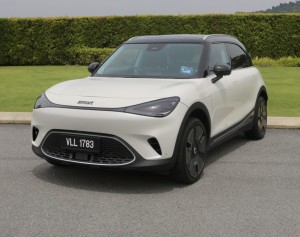
8.8
smart #1 (Premium): Agile, engaging, roomy, premium motoring
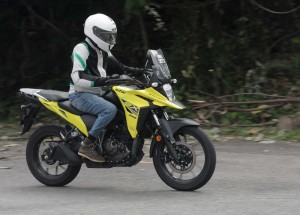
6.6
Suzuki V-Strom 250 SX: Multi terrain warrior
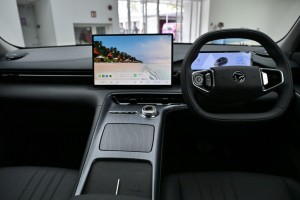
Proton e.MAS 7 impresses in quick dynamic driving exercises
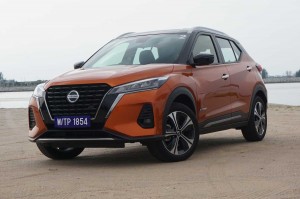
Nissan Kicks e-Power: Kicking off a new efficiency
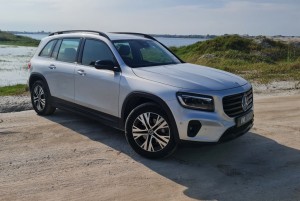
6.8
Mercedes-Benz GLB 200: Measured versatility
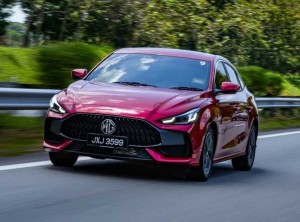
MG5: Slick and comfortable cruiser
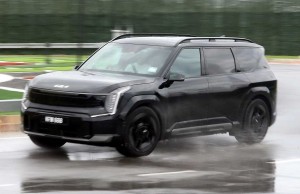
8.2
Kia EV9: Prime cut

8.0
Triumph Tiger 1200 GT Pro: High adventure on two wheels
Videos

The Snowball – Lamborghini’s Heartwarming Christmas Story of...

EVOGO battery swapping solution showcased at IAA Mobility 20...

Jaguar's Bold Type 00 Concept: A Glimpse into the Future of ...
